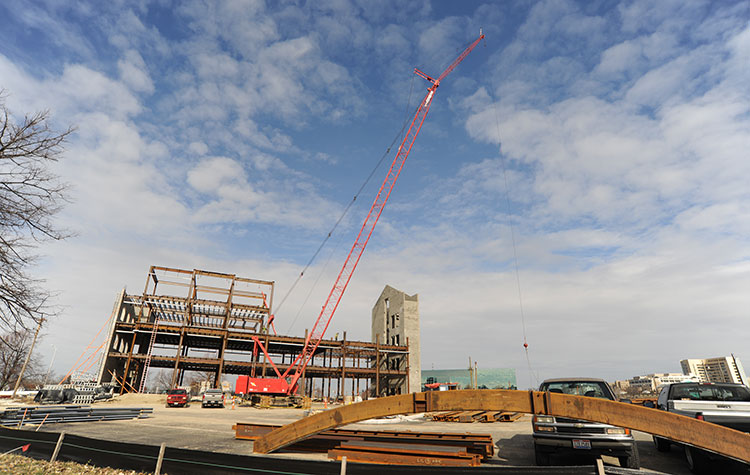Document Type
Article
Publication Date
3-2020
Publication Source
Underground Space
Abstract
Stochastic simulation approaches and uncertainty quantification are usually adopted for gaining insight into variability in soil stratigraphy configurations. Previous investigations at geotechnical site characterization and interpretation can be broadly categorized into geostatistics- and process-based methods. On the other hand, modern site exploration techniques provide high-quality, dense datasets in physical spaces with high resolution, either directly from sensors (for example, cone penetration testing data) or indirectly from geophysical inversion (such as seismic inversion, electromagnetic induction inversion, and ground penetrating radar). In this work, anisotropy and heterogeneity are considered as possible patterns that inherently exist in the observations, and these are inferred and described in a Bayesian manner. To this end, a Bayesian machine learning approach is employed to extract these patterns from the original or interpreted data. The patterns are divided into two parts: spatial and statistical patterns. These patterns are considered as the "hidden link" among multiple spatial datasets. The proposed modeling method is demonstrated using a real-world, one-dimensional example as well as two two-dimensional numerical examples. It is revealed that the proposed clustering approach is a promising tool for subsurface modeling and pattern extraction. (C) 2020 Tongji University and Tongji University Press. Production and hosting by Elsevier B.V. on behalf of KeAi Communications Co.
Inclusive pages
84-92
ISBN/ISSN
2096-2754
Document Version
Published Version
Publisher
KEAI Publishing Ltd
Volume
5
Peer Reviewed
yes
Issue
1
eCommons Citation
Hui, Wang, "Finding Patterns in Subsurface Using Bayesian Machine Learning Approach" (2020). Civil and Environmental Engineering and Engineering Mechanics Faculty Publications. 71.
https://ecommons.udayton.edu/cee_fac_pub/71
Included in
Civil Engineering Commons, Construction Engineering and Management Commons, Environmental Engineering Commons, Other Civil and Environmental Engineering Commons, Transportation Engineering Commons




Comments
This open-access article is provided for download in compliance with the publisher’s policy on self-archiving. To view the version of record, use the DOI: https://doi.org/10.1016/j.undsp.2018.10.006